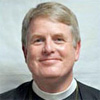One of the buzz phrases going around the church at the moment is “radical hospitality.”
Sounds edgy and “out there,” doesn’t it? As I understand it, radical hospitality is a serious commitment to welcome all people to our common life in the church no matter who they are, what they look like, and as the old Church Ad Project stated: “No matter how many times they’ve been born.” It’s a contention that since Jesus welcomed all, loving and accepting people right where they were and just as they were, the church should engage in such a spiritual practice with our neighbors and with no strings attached. “There are no outcasts” is another way folk in the church have described such a practice.
By my lights, there’s much to commend in such a stance toward people outside the church. Our churches ought to be places of pure welcome and grace. We truly ought to be communities of “radical hospitality” to the stranger.
And yet, the theology behind this practice, however right and good, has tended to mask something else that we need to acknowledge and address. For the sake of argument, I would call the theology behind the movement of “radical hospitality” a “Theology of Attraction.”
Such a theology holds that if we’re just open and welcoming enough people will naturally be attracted to us and want to come and join our churches. So, with this theology we declare that all people are welcome and we will offer them “radical hospitality” when they come into our churches.
That is all well and good, but in case you have not noticed, fewer and fewer people are attracted to our churches. This is true regardless of denomination as Pew and Barna and other research organizations have pointed out.
There is nothing inherently wrong and many things right with a “Theology of Attraction.” It, however, does not go far enough or address the challenges we face. A “Theology of Attraction” waits for people to come to us.
We did that well for a generation. It used to be that we would buy some land, build a church, call a reasonably nice priest to serve it, open the doors on Sunday, and we would have a sustainable church in no time flat. We did that quite well as we followed the suburban sprawl of our culture in the 50s and 60s.
And now we sit in our churches like people stood up on a date. A “Theology of Attraction” is inadequate. We need a “Theology of Mission” like the early church had, in which modern day “apostles” (literally “ones who are sent out”) leave the friendly confines of our church buildings and go to where people are. We need to go to where people are because they are not coming to us, no matter how attractive we might be.
Our current practice is still akin to putting an empty fish tank on the beach and then waiting for the fish to jump into it.
We need to realize that only the dead fish are on the beach.
Scott Benhase is the Episcopal Bishop of the Diocese of Georgia.







